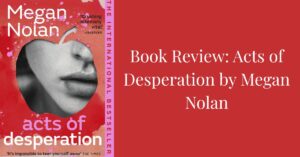I just finished reading ‘The Three Body Problem’ by Chinese author Liu Cixin. It’s the first of a sci-fi trilogy set in China, spanning several decades. It begins in 1960s China during the Cultural Revolution under the reign of Mao Zedong – a period Liu Cixin fondly refers to as ‘The Madness Years’. Intrigued? So was I. Two warring factions take turns taunting and shooting at each other until a fifteen-year-old girl takes a bullet to the chest. The opposing faction then seizes her lifeless body, impales it on a gate and uses it for target practice.
I thought, hmmn…strong start. Is this for real though? Was the Cultural Revolution a real event? Like other ambitious reading picks I’ve made this year, this too sent me to the historical archives. Turns out, it was a real event. Moreover, some of the atrocities people committed during that time were worse than using a girl’s lifeless body for target practice. History never disappoints. This bit of background is a crucial origin story for one of the key characters.
It’s hard to talk about this book without giving away spoilers. There are reveals in every chapter right up to the end that will awe and outrage you in equal measure. It’s one of those books that aren’t simply read; they are experienced.
But since it’s sci-fi, there is wiggle room to make some safe assumptions that are common with many sci-fi plots. Human earth dwellers long to find out whether there is intelligent life in outer space. Naturally, they probe for E.Ts. There is a mad scientist, of course, whose story arc is not unlike the others. One of earth’s most brilliant minds becomes disillusioned with human nature and concludes that humanity is a lost cause. It must be …not exterminated exactly, rebooted. Cleansed, more like. So there you have your villain origin story. Needless to say, there are also the good guys who try to stop this from happening.
As for how they go about it, you’ll have to find out in the book. Which by the way I highly recommend. It’s a bit heavy on science and physics for my taste. Personally, I was in it for the fiction; I haven’t read sci-fi since ‘The Sphere’ by Michael Crichton when I was in high school. But I think fans of the genre will thoroughly enjoy it.
If you don’t get round to it though, (*drumrolls) it’s coming to Netflix! Yeah. Netflix is adapting it and they’ve attached some notable names to the project too. Game of Thrones screenwriters David Benioff and D.B Weiss, Brad Pitt whose company just produced Outer Range and Rosamund Pike from Wheel of Time will all be on it. So you know it’s going to be fire.
Besides that, I’ve also finished other books (‘No One Writes Back’ by Jang Eunjin and ‘At least We Can Apologize’ by Lee Ki-ho). ‘Night Boat to Tangier’ by Kevin Barry was remarkable but it just wasn’t for me so I set it aside. One other that is worth mentioning is ‘A Horse Walks into a Bar’ by Israeli writer David Grossman. A maddening book to read if ever there was one – Possibly Even More Than Pachinko And You Know How I Felt About That.
Here’s what happens. The narrator is a retiree who was forced to leave his post as a magistrate. After his wife died, he became ill-tempered and disagreeable. It started to affect his performance at work. You know, overly harsh sentences and such. One day he’s sitting around the house with all his feelings when the phone rings. It’s a childhood friend from back in the day. He hasn’t seen or spoken to him in decades. The guy wants him to go see his act, a standup comedy show.
The entire book unfolds during this one act – all 210 pages of it. It takes place in a little comedy club. A joint I imagined was something like the Gaslight in The Marvelous Mrs. Maisel. The audience goes in expecting jokes only to find a display of self-flagellation, both emotional and physical. The comedian not only tells self-deprecating jokes, but he also punches and slaps himself across the face. It is uncomfortable to watch (and even more uncomfortable to read).
The audience boos and some people even stage a walkout. However, others stay on while he tells the story of his suicidal mother and abusive father. How he coped by walking on his hands everywhere which no doubt made him the weird neighbourhood kid. He was miserable at military camp too where he was bullied while his childhood friend (the former magistrate) looked the other way. Then one day he was whisked away and informed that he was going to a funeral for one of his parents. No one had the stones to break the news to him; they just called him an orphan.
He then spent an eternity on the car ride home (complete with unnecessary pit stops and enough details on minutiae to drive you up a wall). During this time, he mulled over which one of his parents he would prefer to have died. Yeah. Not a fun read.
I came across it while I was hunting for new material. David Grossman won the International Man Booker Prize for it in 2017. The premise was interesting enough so I thought I’d give it a go. It had mixed reviews online – some people thought it was brilliant. Others compared it to visiting the town square expecting a magic show only to find a self-professed witch lighting her own pyre. Or going to a sit-in protest that escalates to someone self-immolating. I do not recommend…unless you’re a masochist. The writing is good though, and perhaps I don’t fit the demographic of the intended target reader so there’s that.
What have you been reading?
P.S The quills need ink and the writer thrives on coffee. To support me, M-Pesa to Buy Goods Till number 5476019 or dial *126# and Lipa na Bonga. All amounts are welcome and appreciated. Thank you for growing with the writer. Love & light.







